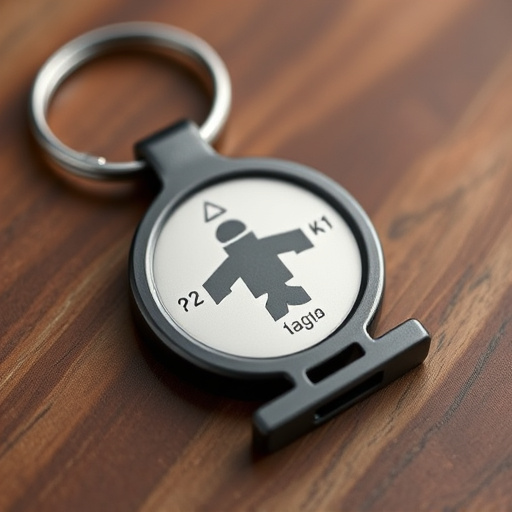The legality of concealable keychain weapons for women varies globally, with regulations dictating permit requirements, age limits, and public carrying restrictions. Understanding local laws is crucial to avoid legal issues while prioritizing personal safety. Significant differences exist between jurisdictions, with some allowing unrestricted carrying and others imposing stringent gun control measures. Effective self-defense requires a balance between weapon functionality and legal compliance.
In today’s world, personal safety is a top priority, especially for women. As a response, concealable keychain weapons have gained popularity as an easy-to-carry self-defense tool. This article delves into the legal framework surrounding these compact defenses, focusing on women’s rights and state-specific regulations. We provide a comprehensive guide to ensure users understand the legal requirements when considering a keychain safety device, offering peace of mind and empowering individuals to take control of their security.
- Legal Framework for Concealable Keychain Weapons
- Women's Self-Defense Rights and Restrictions
- State-by-State Regulations: A Comprehensive Look
- Safety Features and Legal Compliance Checklists
Legal Framework for Concealable Keychain Weapons
The legal framework surrounding concealable keychain weapons, particularly designed for women’s personal safety, varies significantly across jurisdictions. In many countries, small, easily concealed self-defense tools like keychain pepper spray or stun guns are regulated under specific laws governing firearms and offensive weapons. These regulations often consider factors such as size, capacity, and potential for harm, with certain restrictions in place to ensure public safety without unduly hindering the ability of law-abiding citizens to protect themselves.
For instance, some regions allow for the possession of mini pepper spray devices attached to keychains under specific conditions, while others might restrict these weapons to those with a valid concealed carry permit. It’s crucial for women considering the use of concealable keychain weapons to understand and comply with local laws to avoid legal repercussions. Staying informed about their rights and responsibilities can empower them to make informed decisions regarding personal safety in an increasingly diverse and dynamic world.
Women's Self-Defense Rights and Restrictions
Women who choose to carry self-defense tools, such as concealable keychain weapons, should be aware of legal requirements and restrictions that may vary by jurisdiction. In many regions, it’s crucial to understand the regulations regarding concealed carrying of any type of weapon, including small, discreet devices designed for personal safety. These laws often consider factors like permit requirements, age restrictions, and places where such weapons are permitted or banned.
For example, while some states may allow women (and individuals) to carry concealable keychain weapons without a permit in certain situations, others might demand specific licenses or permits. Additionally, there could be restrictions on the type of weapon, its size, and the locations where it’s legal to use or carry it publicly. Women considering this option should research their local, state, or regional laws thoroughly to ensure they understand and comply with all relevant regulations, thereby safeguarding their rights while prioritizing safety.
State-by-State Regulations: A Comprehensive Look
In the United States, the legal landscape surrounding concealable keychain weapons for women varies significantly from state to state. While some states have embraced the concept of personal protection through innovative legislation, others maintain stringent regulations or outright prohibit such devices. It’s crucial for any woman considering the purchase and carry of a concealed keychain weapon to understand her state’s specific laws before making an informed decision.
For instance, states like Texas and Florida have relatively relaxed rules, allowing qualified individuals to conceal carry certain types of weapons, including small and compact self-defense devices like keychain guns. Conversely, states such as California and New York have stringent gun control measures in place, often limiting or outright banning the possession of concealed firearms, including those designed to fit on keychains. This variability underscores the importance of a thorough review of local regulations before purchasing and carrying any concealable keychain weapon for women.
Safety Features and Legal Compliance Checklists
When considering a keychain safety device, especially for personal protection like concealable keychain weapons designed for women, it’s crucial to ensure both safety features and legal compliance. These devices are intended to provide quick access to self-defense in emergency situations. Therefore, a thorough check of their reliability, functionality, and legality is essential.
Safety features include robust construction, sharp blades or pins that can deter attackers, and easy operability even with gloved hands. Legal requirements vary by region, so it’s important to familiarize yourself with local laws regarding concealed weapons, permit requirements, and restrictions on certain types of devices. A compliance checklist should cover factors like age restrictions, carry permits, prohibited locations, and notification obligations.
When considering the legal requirements for keychain safety devices, especially for women looking into self-defense options, understanding the diverse state regulations is crucial. This article has navigated the legal framework surrounding concealable keychain weapons, highlighting the rights and restrictions in place. By examining state-by-state guidelines and focusing on safety features, it’s clear that there are viable options available while adhering to the law. Armed with this knowledge, women can make informed decisions about their personal safety and choose a self-defense mechanism that meets both their needs and legal standards, ensuring they stay protected in an uncertain world.
